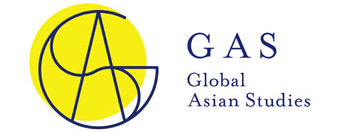“Yenching Academy”and the Global Japan Studies, continued
Professor Shigeto Sonoda (Institute for Advanced Studies on Asia and Graduate School of Interdisciplinary Information Studies, The University of Tokyo)
At exactly this time of last year, I contributed an essay titled “’Yenching Academy’ and the Global Japan Studies.” One year has passed since then. Both Yenching Academy and Global Japan Studies Program underwent some changes.
First, Yenching Academy.
Student recruiting was completed before the program starts in September 2015. According to official homepage, 35 students from Asia are scheduled to enter the program. Two thirds of them are from within China with a limited number of students from neighboring countries/regions: 1 from Korea, 1 from Taiwan and 2 from Japan. On the other hand, many students come from prominent universities in Europe and the U.S., including 6 from Harvard University and 4 from Princeton University, which suggests new pattern of in-bound flow of students to China. According to John Holden, Dean of the Academy, this is the result of placing a balanced emphasis on the characters and social experiences of the applicants as well as their academic records, though some students can’t speak Chinese at all.
Just like Global Japan Studies Program, Yenching Academy has not progressed smoothly. The largest miscalculation was that the idea of one-year master program was not approved by the Ministry of Education and had to be changed to two-year program. As a result, the first year will be used for coursework, while the second will be used for thesis writing. It is surprising to see that Peking University, one of the flagship universities in China, was forced to revise its program after they started advertisement of the Academy. This is ironical given that the above-mentioned John Holden visited the University of Tokyo to explore possible collaborative relationship in the management of a thesis-writing program.
Global Japan Studies likewise started its cross-disciplinary, undergraduate-oriented educational program in April 2015. Core courses and elective courses are already designed and the program is open to the foreign students coming here on the University-wide Student Exchange Program (USTEP). When Global Japan Studies Program was explained to universities overseas with collaborative relations, overall reaction has been positive. The evaluation report for the University of Tokyo’s application for JSPS’s Top Global University Project entitled “Designing a Global Campus Model by the University of Tokyo” appreciated the application by a special note that “establishment of Global Japan Studies Program is a good idea.”
However, given that Japanese universities’ reform follows a “grafting model,” it suffers from fatal lack of useable funds and resources. Even though the program was officially recognized by the university, it does not have its own budget. Global Japan Studies Research Program based at the Institute for Advanced Studies on Asia similarly proceeds on a volunteer basis. During conversation with me, John Holden told that “thanks to huge donations from oversea Chinese we have ample budget.” Moreover, “donors made no request as to how to use the donated money or about the specific contents of the program.” What an envious!
Yenching Academy of Peking University has been established under strong leadership, which created both strong support from overseas Chinese and strong opposition from professors (It is well known that after the launching ceremony in May 2014, some professors of Peking University showed strong opposition to the idea of establishing Yenching Academy). Global Japan Studies of the University of Tokyo, on the other hand, has been carefully created on the basis of internal consensus within the university, which created neither strong support nor strong opposition. Then, which program is better? We will know the answer few years later by comparing the quality of the students who study in the programs and the quality of research activities carried out in the programs.



